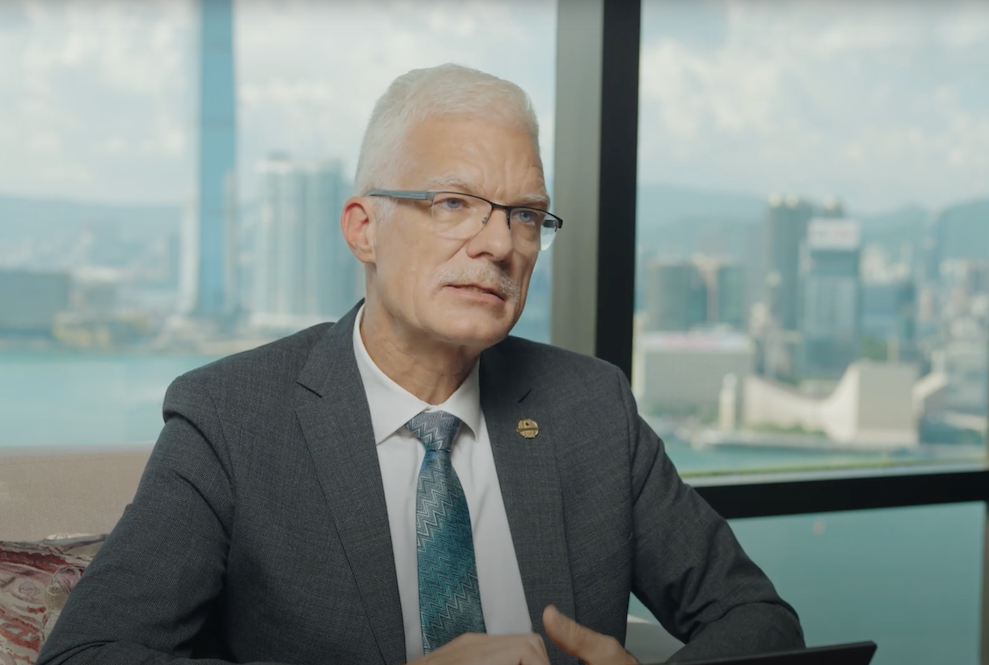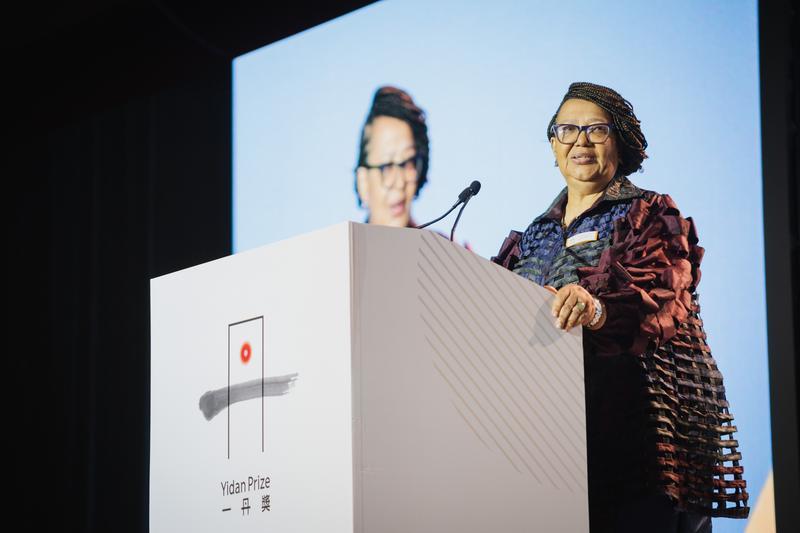To prioritise education is to prioritise social and economic progress. Through the work of its laureates, the Yidan Prize Foundation is creating a better world through education.
As the UN General Assembly marks the fifth International Day of Education on January 24, 2023, the Yidan Prize Foundation reflects on the leaps made by the education community in 2022 and places one theme into focus for the year ahead.
This year, the International Day of Education shines a spotlight on how prioritising education is an investment in people. As UNESCO says: “Only lifelong education can break the cycle of poverty, improve health outcomes, prepare people for decent jobs … and mitigate the climate crisis.”
Education changes everything
The life-changing power of learning is borne out by research. In 2020, we partnered with the Wittgenstein Centre to publish a report demonstrating the links between people’s education, income and cognitive capacities. By collating research from the past 70 years, the report reveals that education literally changes our minds by making us more capable of abstract thinking and calculating risks. These changes help ensure individuals make choices that lead to longer, healthier and more productive lives.
Bringing change to the most marginalised
Our 2022 Yidan Prize laureate for education research, Dr Linda Darling-Hammond, sees education as the foundation that sets people up for success. Beginning her work as a public school teacher in the US, she saw first-hand how inequitably distributed school funding affected student resources, teaching capacity and student outcomes.
Since then, Linda has focused on levelling the playing field after moving from teaching to academia and policymaking. She’s strengthened teacher-development programmes, evaluated different educational methods and designed better schools—all in pursuit of equitable education for every child.
Education as an ecosystem
For Professor Yongxin Zhu, the 2022 Yidan Prize laureate for education development and professor at Soochow University’s School of Education, the whole is greater than the sum of its parts. To truly make a marked difference in students’ lives, he says, learning extends far beyond the classroom, with many factors influencing how (and how well) we learn.
To this end, Professor Zhu’s New Education Initiative (NEI) program invites students, teachers, and parents to read and write together. Its program also includes an extended school library, where the wider community can collectively learn.
NEI works with families to create positive learning environments at home. Importantly, Professor Zhu’s work also builds a supportive community and helps rural teachers feel connected and valued. This model fosters leadership skills and helps teachers find fulfillment within their careers.
The program has expanded from a single school to encompass 8,300 schools across China. Now, it reaches millions of children, many in remote, rural areas. For each child, the individual impact is quantifiable. Research shows that for NEI students, there’s an uplift in reading interest, academic abilities, and all-round sense of belonging at school.
The work of both Linda and Professor Zhu resonates with the UN’s Sustainable Development Goal 4 (SDG 4), which spells out the importance of ensuring inclusive and equitable quality education for all.
The pandemic has created serious setbacks in achieving SDG 4. Over the last two years, an estimated 147 million children missed more than half of their in-person lessons. Now, as we arrive at the mid-point since the adoption of the UN 2030 Agenda, the role of education has never been clearer, especially as this new generation will soon be shaping progress around climate change issues, jobs and technology, health and well-being, and governance.
In projects and programs like those of Linda and Professor Zhu, we see innovative, sustainable, and transformative solutions emerging in the global education community.
But what about the broader social and economic impact of change at such a scale?
The impact of education ripples far and wide
First across communities, then across countries: our 2021 education research laureate, Professor Eric Hanushek, has shown that long-term growth in gross domestic product (GDP) is largely determined by how educated its workforce is—the ‘knowledge capital’ of the country—rather than its natural resources or population size.
Crucially, Eric proves that such economic growth through education is determined by quality over quantity. More hours spent in school or more dollars invested by a nation aren’t the factors that drive progress; instead, governments should use scientific research to determine which methods and systems impart the most knowledge.
Collaboration is vital for transformation
Education can lay the groundwork for an individual’s future, open opportunities for entire communities, and unlock economic growth. But to achieve this potential, collaboration is key.
Policymakers must support educators and researchers by working alongside them. With severe teacher shortages worldwide, it’s never been more important that the education community have their voices heard. Then, by sharing ideas and insight and working with experts globally, we can help shape education systems that are fit to meet future challenges.
Shining a light on changemakers
Good ideas are everywhere. Education initiatives and research projects in developed and developing economies are changing learning and lives worldwide. And these ideas go beyond the stories highlighted here.
Whether it’s creating communities of learners in sub-Saharan Africa, helping children learn through play in Bangladesh, or spreading STEM education worldwide through online simulations, the work we recognize reaches far and wide.
This year, the International Day of Education highlights what we firmly believe: education is the ultimate driving force for social progress. By uncovering innovations with impact—ones that increase human potential—we can help people lead better lives and create a better world through education.
By Dr. Charles CHEN Yidan, Founder of the Yidan Prize
——
This article originally appeared on Financial Times 24 January 2023. No endorsement by Financial Times is implied.













